This article is written by Kishita Gupta and further updated by Kanika Goel. This article provides a comprehensive analysis of the concept of parole by underlying its origin, its theoretical foundation and the laws applicable upon parole in India. The author through this article has also provided a distinction between parole and its interlinked concepts such as bail, probation and furlough. Further, this article provides a note on the merits and demerits of parole by citing various incidents of its misuse.
Table of Contents
Introduction
Parole is considered as a crucial concept of any criminal justice system. Derived from the French phrase “je donne ma parole”, the term parole means “a word of honour.” It is a conditional release granted to the convict based on their good behaviour, it allows the individual to leave the prison temporarily and reintegrate into society.
Allowing parole to a prisoner grants him a sense of liberty and freedom even before his period of sentence ends. It is a process which acts as a catalyst for the reformative theory of justice. By allowing parole, a chance for social and mental reformation is granted to the prisoner which brings a little normalcy in his life. Even though parole is granted with an intention to provide a chance of rehabilitation and reformation to the convict, there arises a lot of incidents where it is seen that the liberty and freedom gained through parole get abused and misused.
The Indian criminal justice system involves a lot of laws which deal with social reformation by providing penal provisions. However, we are still in need of a unified central legislation dealing entirely with the concept of parole and the procedure to grant parole.
The present article specifically deals with such laws and the approach of judges while taking up such issues. It focuses on the detailed analysis of the concept of “parole” by giving emphasis on its various definitions as given by various jurists and scholars while also highlighting the role of the judiciary and state authorities in the proper functioning of the system of parole. Let us understand and have an in-depth analysis of parole while dealing with all its ancillary concepts.
Meaning of parole
As defined in the Black’s Law Dictionary, parole is “a conditional release of a prisoner, generally under the supervision of a parole officer, who has served part of the term for which he was sentenced to prison.”
It is appropriate to mention that the released prisoners stay under the supervision of the parole officers and, hence they derive benefit from it because tight monitoring is needed when a prisoner is reinstated back into society after a certain period of sentence. The very basic idea behind awarding parole has always been that remaining behind the bars breaks the ties of the prisoners with their societal relations and hence it becomes important for a released prisoner to acquire living skills. Parole as a concept in turn allows a prisoner to maintain his family ties while serving the parole period.
Usually in India, parole is granted to a prisoner who has served a significant term of his sentence in prison.
Definitions of parole
A parole may simply be understood as a process of conditional release of an offender for the purpose of his reformation and reintegration into the society. However, various definitions of parole are mentioned below in order to create a better understanding of the concept:
- According to the dictionary of Merriam Webster, parole is considered a “conditional release of a prisoner serving an indeterminate or unexpired sentence.”
- As per the dictionary of Cambridge, parole is defined as a “permission for a prisoner to be released before their period in prison is finished, with the agreement that they will behave well.”
- According to Britannica dictionary, a parole is a “permission given to a prisoner to leave prison before the end of his sentence usually as a reward for behaving well.”
- An eminent sociologist, J. P. Gillin defined the term parole as “the release from a penal or reformative institution, of an offender who remains under the control of correctional authorities in an attempt to find out whether he is fit to live freely in the society without any supervision.”
Origin of parole
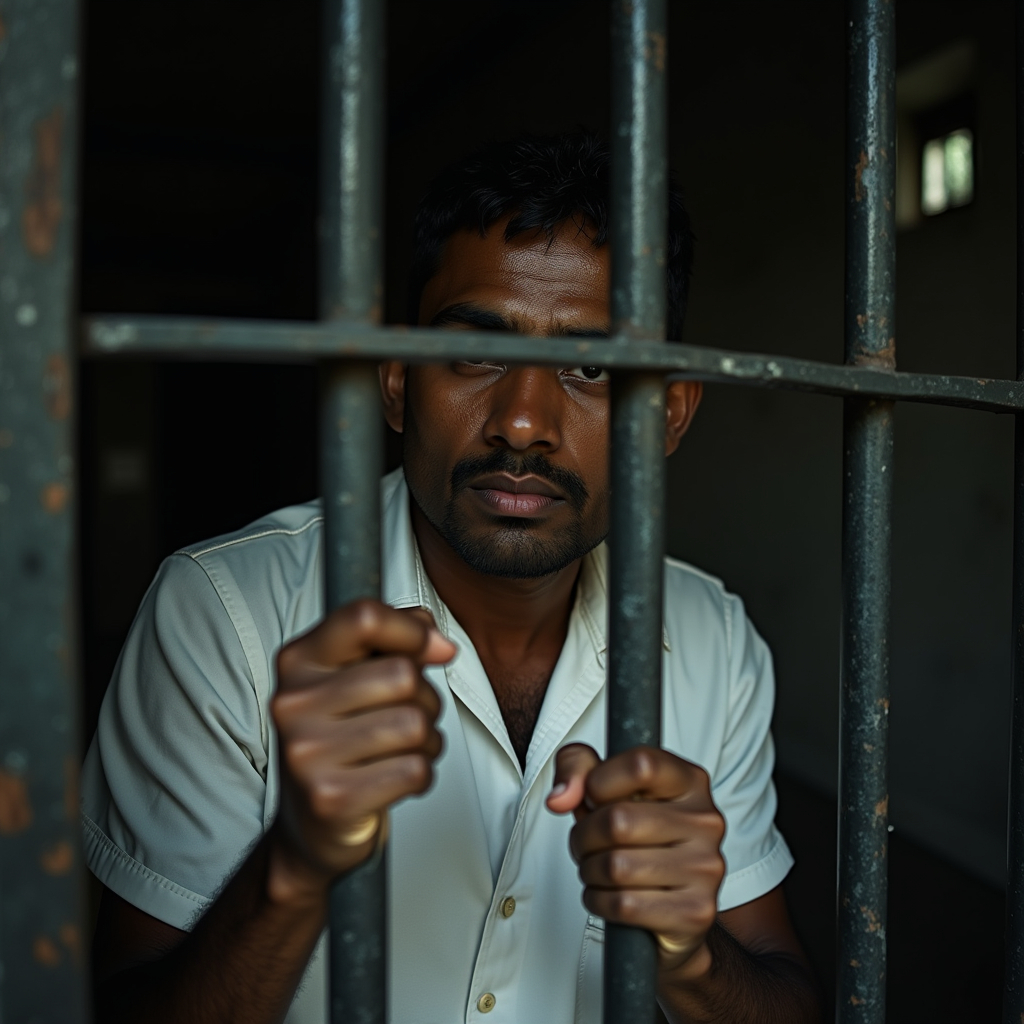
The positivist school of law has laid down the foundation of the concept of parole. A criminal reformer of this school, Samuel G. Howe was the first person who used the term ‘parole’ to denote a process of giving freedom to people to act as per their choice of behaviour. According to him, if a convict keeps on working illegally by committing crimes in order to have personal gains by causing wrongful loss to others, he becomes unfit to live in a peaceful society and hence, becomes liable to be punished.
The concept of parole derives its origins from military law when interim release was granted to prisoners of war in order to reintegrate them back into their families with the condition of returning when the time period of parole was over. However, with the advent of time, parole drew a space in the criminal justice system of India by allowing inmates of prisons to reintegrate into society.
However, it has always been considered that rehabilitation is the basic human right of any convict. In order to provide such a chance to a convict, the state authorities started releasing convicts of lesser serious crimes for a certain period to enable them to reform and reintegrate into the society. This came up to be called the concept of parole.
Theories behind parole
There are numerous theories which form the basis of the concept of parole and provide a rationale behind introducing such a concept. Though these theories derive their foundation from the English law, they find their relevance in the Indian criminal justice system as well. Some of the major theories are listed and explained below:
Custody theory
Custody theory states that when a person in prison is released on conditions of good faith and for his transition into a better person for the society, he is kept under the supervision and control of some authority. The control or the custody of the released inmate of the prison remains with the state which has the duty to monitor and observe the individual’s behaviour and to make sure that all the conditions of his parole are complied with.
This theory faced very little criticism since the released inmates from the prison could be reintegrated into the society under the controlled process and there remained a balance of freedom and control.
Grace theory
Given by Justice Cardozo, this theory by its name gives a clear indication that grace and mercy are the foundation of granting parole and not the right of the prisoner. Under this theory, the release of prisoners is done out of a merciful act of the state in order to reduce the agony of the prisoner. Such parole is considered as a gift of the state to the released inmates, though levying a discretionary power upon the authorities to grant parole.
Contract theory
Since parole is considered as a conditional release, a parolee is usually asked to sign a form which mentions the conditions of his parole. This signing of the form acts as the basis of this theory.
The authority making the form and the parolee act as the parties to the conditional form of release. Such conditions levy accountability upon the parolee to adhere to those conditions because he is the signing party to the contract. There arises a formal agreement between the state and the parolee.
Theory of exhausted rights
When a prisoner is granted parole on the basis of this theory, he is bound by the limited and suspended rights as per the discretion of the state. As per theory, when a person is released from the prison, he agrees to some limited rights but once the conditions of the parole are abided by, the rights become fully exercisable and restored. The sole aim of this theory is the rehabilitation of the prisoner in the society where he experiences certain conditional rights.
Objective behind parole
There have been instances when the Indian courts have stressed upon the purpose of allowing parole to the convicts which also can be considered the objectives behind awarding parole to any jail inmate.
In the case of Charanjit Lal vs. State and Ors. (1985), the Delhi High Court stated that “it is evident that release on parole is designed to afford some relief to the prisoner in certain specified contingencies, for instance, illness or death of member of his family or marriage of the prisoner himself or any member of the family etc.”
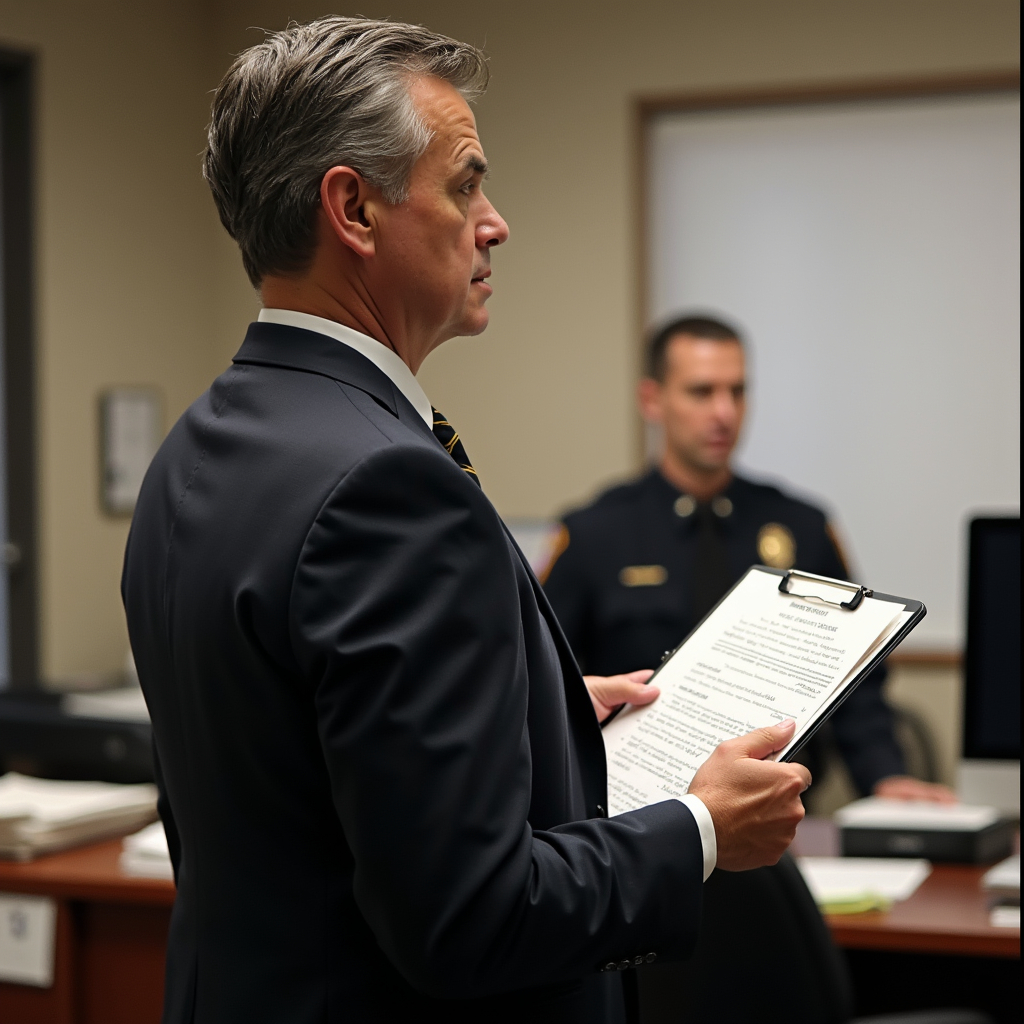
This statement is proof that a prole is awarded to allow a convict to rejoin his family for some specific reasons as listed above in this case and this forms as one of the objectives behind allowing parole.
Parole serves as a method of rehabilitation for a convict and a process of correction and reformation. The major objectives behind awarding parole are:
- It serves as a motivating factor for a prison inmate by allowing him to mould the way of living his life.
- It enables a parolee to maintain his family ties, helps in becoming an example of a reformed person for other jail inmates.
- It provides him the liberty and freedom to an extent while being on parole.
Who is eligible to be released on parole
As per Clause 11 of the Parole/Furlough Guidelines. 2010 (hereinafter referred to as the “Guidelines”), the following eligibility criteria are to be considered while granting parole to a convict:
- In order to be released on parole, a convict must have served at least one year of his jail term excluding the period of any sort of remission.
- The convict to be released must have shown constant and uniform good behaviour while serving the jail term.
- The convict should not have committed any crime while he was serving any previous parole period.
- There must be a gap of at least six months between two parole periods.
- The convict to be released on parole is expected to adhere to all the conditions of the parole and hence, it is also taken into account that he must not have violated any parole conditions while being on previous parole.
When can a parole be refused
Awarding parole is a discretion which lies with the prison authorities or the state authorities. As mentioned in the former heading, there are certain conditions to be followed in order to make a convict eligible for parole. On the other hand, as per Clause 12 of the Guidelines, parole can be refused to the following categories of convicts:
- Any convict whose release would result in a national threat and would pose a danger to the society. A convict against whom a serious criminal case lies pending becomes ineligible to be released on parole.
- Escaped prisoners are not eligible to be released on parole.
- A foreign prisoner is not eligible to be released on parole.
- A parole can be refused to a convict who is serving a sentence for committing a heinous crime such as murder, rape or any crimes against the state such as sedition.
In the case of Kesar Singh Guleria vs. State of Himachal Pradesh (1984), the High Court of Himachal Pradesh opined that the release of a prisoner is dependent on the fact that whether has been seen as a notorious criminal or a person posing no substantial risk to the society. If a prisoner belongs to the former category, the state or the jail authorities can opt for not awarding parole to him. However, if a prisoner showcases satisfactory behaviour, he should be released on parole so that he may continue to maintain his family and societal ties.
Procedure to be followed while awarding parole
As a part of the standard protocol, when a jail inmate requests parole from the jail authorities, the Superintendent of the jail is expected to obtain a report from the police station which made the arrest of the convict who requested parole.
The report, along with additional documents such as a medical certificate (in the case of illness as a justification for parole), and the Superintendent’s recommendation, is submitted to the Deputy Secretary, Home (General), State Government, who makes the final decision on the application.
In some states, the application is referred to the Inspector General of Prisons along with the police report and recommendation, who then consults it with the District Magistrate. The final decision of awarding parole always lies with the State Government along with the consultation of the District Magistrate.
Laws governing parole in India
India currently lacks a central legislation that directly governs the subject matter of parole. Hence, the procedure and the entire system for granting parole is governed by the parole guidelines under the purview of the Prisoners Act, 1894 and the Prisoners Act, 1900.
However, even though the concept of parole does not find space in a particular legislation, it still becomes important to decipher the provisions of the Bharatiya Nyaya Suraksha Sanhita, 2023 (hereinafter referred to as ‘BNSS’) which covers parole entirely and makes parole an integral part of the Indian criminal justice system.
Parole under Bharatiya Nyaya Suraksha Sanhita
Section 473 of the BNSS (earlier Section 432 of the Code of Criminal Procedure, 1973) talks about the suspension and remission of sentences by the appropriate government. However, as the provision specifically mentions the suspension of the sentence which is not the same as the concept of parole, it can be said that BNSS does not govern the system of granting parole in India. As stated by the Supreme Court in the case of Sunil Fulchand Shah vs. Union of India (2000), parole does not amount to suspension of sentence.
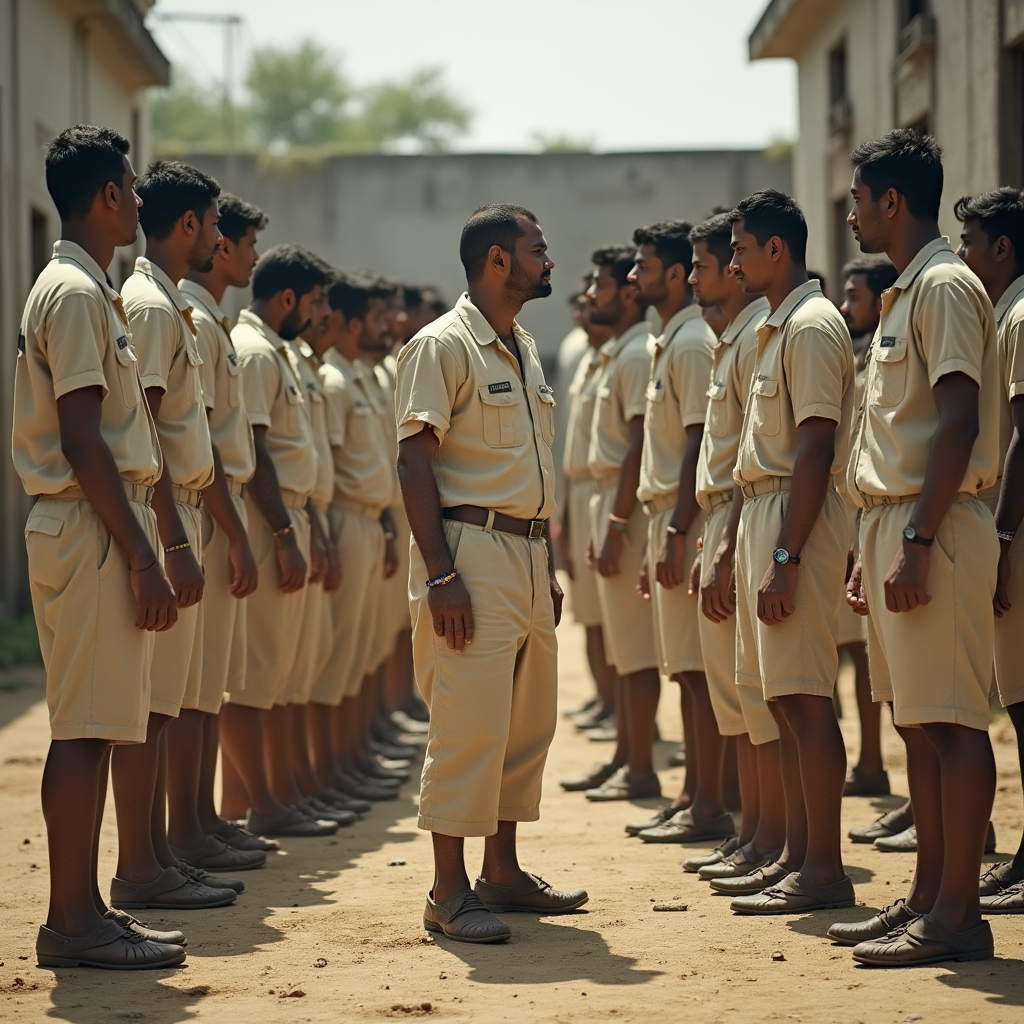
Due to the lack of a unified legislation governing parole in India, every state has its own rules and laws in order to regulate the system of granting parole to prisoners. Each state has its own guidelines and prison manuals which deal with the process and other conditions of parole.
Unlike, Chapter 224 of the Code of Crimes and Criminal Procedure, 1948 in the United States of America and the Criminal Justice Act, 2003 in the United Kingdom, there is no codified law in India which discusses the issues pertaining to parole and the power to decide issues on parole derives mostly from the judgements and the foreign statutes.
Types of parole in India
Custody parole or emergency parole
Custody parole is provided in emergency situations. All the convicted persons except foreigners may be considered eligible to be released on parole for two weeks. However, it is important for the jail authorities to analyse the reasons before granting parole to a convict. These reasons may include any family emergency such as the death of a family member, or the marriage of the parolee’s son or daughter. But, in any case, an emergency or a custody parole cannot be extended beyond a period of 14 days.
The Superintendent of jail grants parole, which is subject to verification of the circumstances from the concerned police station. Depending on the offence committed by the prisoner and his behaviour during his stay, the authority approving emergency parole will determine whether to give parole under police escort or with a condition to report daily to the local police station.
Before a prisoner is released on parole, the responsibility to bear the costs of a police escort would lie with the prison authorities. However, in an extreme situation such as the death of the prisoner’s wife or children, he can be granted another term of emergency parole which may last for 1 year as well.
Regular parole
In contrast to custody parole, a regular parole is usually granted to those jail inmates who have served at least one year of their term of sentence. The maximum period of a regular parole is one month and not beyond. The reasons behind awarding a regular parole to a prisoner include:
- Instances of serious illness of his immediate family members; or
- The death of any of his family members; or
- His wife giving birth to a child; or
- when a calamity has caused serious harm to his family, etc.
However, these are not the only factors for which a prisoner can be awarded parole and the discretion always rests with the jail authorities.
Distinction between parole and furlough
Even though parole and furlough are usually considered interchangeable concepts for both being the forms of conditional release, there lies a few differences between the two. The difference between the two is presented in a tabular form below:
| Basis of distinction | Parole | Furlough |
Eligibility | Parole is awarded to the convicts who are serving comparatively shorter jail terms. | Furlough is granted to those prisoners who are serving longer periods of jail terms. |
| Granting authority | A parole is granted by the Divisional Commissioner. | A furlough is granted by the Deputy Inspector of Prison. |
| Duration | Maximum duration of a parole period is one month. | Furlough cannot be granted for more than fourteen days. |
Limitation | There is no limit upon the times for which a parole can be granted except that there should be a gap of at least six months between two parole periods | There is a limit on the number of times for which a furlough can be granted |
Distinction between parole and bail

The table shown below lists down the differences between bail and parole.
| Basis of difference | Parole | Bail |
| Definition | Parole is considered as a conditional release of a prison inmate before the completion of the entire sentence on account of his good behaviour. | Bail, though not defined under BNSS, is the temporary release of an accused during the trial on furnishing of the security or the bail bond. |
| Duration | Duration of parole depends upon the circumstances of the parolee and the crime for which the parolee was sentenced to prison term. | An accused released on bail continues to be on bail until the completion of his trial or till the time the conditions of his bail bond are modified or revoked. |
| Eligibility | As already stated previously, a parole is usually granted to the prisoners who have served a significant portion of their jail sentence. However, the prisoners accused of heinous and serious crimes such as murder and rape are not eligible for the grant of parole since they pose a threat to the society. | Any accused person except those sentenced for the crimes such as murders or rapes can be granted bail in usual cases. |
| Conditions | At the time of awarding parole, the jail authorities pose certain conditions upon the parolee which includes not leaving the territory, not engaging in any illegal or criminal activity, showcase of good behaviour and regular reporting to police etc. These conditions are necessary to be fulfilled and adhered by the parolee while he is released on parole. | An accused who is released on bail has to abide by certain conditions of the bail bond such as regular appearances in court, travel restrictions, not getting involved in any criminal activity etc. |
| Granting authority | Depending upon the state and jurisdiction, a parole is granted either by the court or the jail authorities with prior permission of the state. | The authority to grant bail in India lies with any appropriate court. |
| Purpose | The sole purpose of granting parole to a prisoner is his rehabilitation and reintegration into the society. | The prime purpose of releasing an accused person on bail is to allow him to live a normal life while his trial continues. However, the grant of bail does not absolve the accused from court appearances and he is required to attend the court proceedings. |
| Nature of process | Parole is not entirely a judicial process but majorly an administrative process where the decision-making lies with the state or the jail authorities at times. | In contrast to parole, bail is a fundamental right of an accused and hence, even though the discretion to grant bail lies with the court, an accused person can apply for bail in the pursuance of the exercise of his fundamental right under Article 21. |
| Governing laws in India | Parole is not governed by any unified central legislation in India. Resultantly, every state has its respective parole guidelines and prison manuals which govern the process of parole in that respective state. | Bail in India is governed by the Bharatiya Nyay Suraksha Sanhita, 2023. |

Parole and probation
What is probation
Probation is a non-custodial method of correction by which a person convicted of an offence is released on account of his good behaviour and admonition but remains under the control and supervision of the probation officers. Probation also allows a convict to reintegrate into the society once he is released and complies with the orders of the probation officers.
In India, unlike the lack of unified legislation for the grant of parole, probation is governed by the Probation of Offenders Act, 1958 along with the provisions of the BNSS.
Difference between parole and probation
In most cases, parole and probation are often confused as interchangeable concepts. There lies certain distinguishing factors between the two which are enumerated below:
- Where on one hand, parole is a conditional and temporary release of the prisoners as mentioned by the granting authorities, probation as mentioned under the Probation of Offenders Act, 1958 is granted to the offenders who showcase good behaviour during the term of their sentence and hence, they are released into the society under the supervision of the probation officers.
- Where parole is just a temporary release of the convicts or the prisoners, probation is considered as a result of the judgement given by the court.
- With respect to the laws governing the concepts of parole and probation, India lacks a unified and codified set of rules or laws to govern the system of parole, whereas, the grant of probation is governed by the provisions mentioned under the Probation of Offenders Act, 1958 and the BNSS.
- Where on one hand, parole is considered only a mode of release and not an alternative to the punishment given to the convict, probation constitutes an alternative method of punishment which replaces the sentence pronounced by the court.
- Probation is granted as a part of the judgement delivered by any appropriate court. However, parole is mostly administrative in nature and usually decided by the state authorities including the District Magistrate or the Secretary to the Home Ministry of State.
Is parole a right of a prisoner
Even though parole is counted as one of the rights of a prisoner by a number of international organisations, it is still not recognized as a right in India. In India, the discretion to award parole lies with the state or the jail authorities and hence, a prisoner cannot claim parole as a matter of his right. For example, the European Court of Human Rights has created extensive jurisprudence on the subject of parole, as some justices feel that an irreducible life sentence (life without the possibility of parole) would be in violation of the norm of human dignity.
A recent Supreme Court decision in Ashfaq vs. State of Rajasthan (2017) sheds some light on the laws applicable upon parole in India. The court in this case observed that parole is the conditional release of a prisoner based on good behaviour and the need that the prisoner report to the authorities on a regular basis. It is simply a postponement of his sentence for a period of time, with the severity of the punishment remaining unchanged.
In the case of Natia Jiria vs. State of Gujarat (1984), it was observed that though no prisoner has a legal right to furlough, the regulations apply to all prisoners equally, thus when one prisoner is granted furlough, it cannot be denied to another.
It was held in the Kesar Singh Guleria case that the most important consideration that the releasing authority will always keep in mind is that the right to be released on bail or furlough, as the case may be, upon fulfilment of the other conditions is not lost simply because the prisoner is unable to post a security bond or surety bond due to his financial situation.
Advantages and disadvantages of granting parole
As with every other concept, parole has its own merits and demerits. Let us have a glance at the advantages and disadvantages of granting parole.
Advantages of parole
- Parole serves as a process of rehabilitation and reformation of a prisoner. It aims to provide the jail inmate with a sense of liberty while being on parole and helps the parolee to maintain social ties as well.
- As Indian prisons are overcrowded and overburdened with the number of convicts, granting parole to the eligible prisoners not only lessens the overcrowding of the prisons but also helps the jail authorities to provide better facilities to the remaining inmates.
- When a parolee exhibits good behaviour while being on parole, it acts as an exemplary situation for other jail inmates and encourages them to showcase similar behaviour. This helps in increasing their social responsibility.
Challenges in granting parole
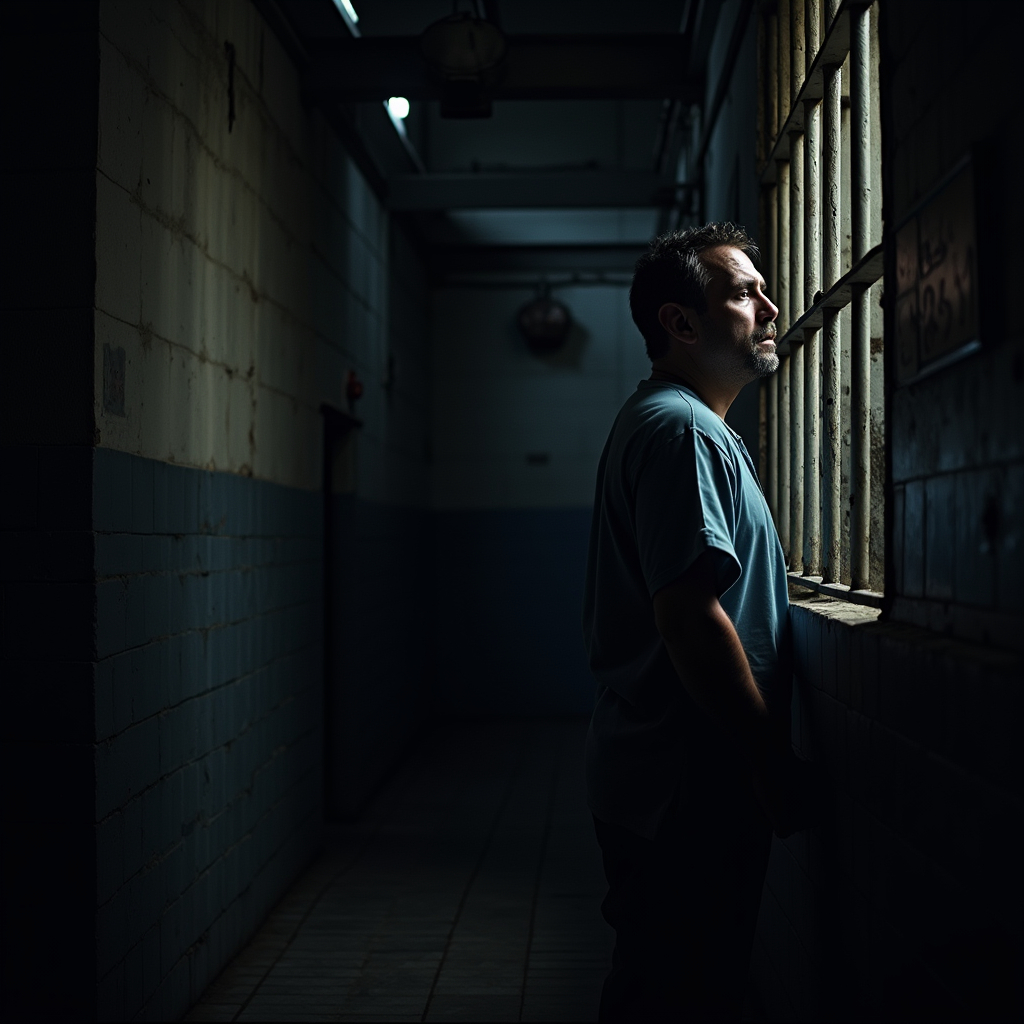
- Even when a prisoner is released on parole, he still remains a convict. This is a common perspective which a released parolee faces and hence, lacks societal acceptance.
- Showcasing similar types of behaviour in every situation becomes a task for a parolee. A parolee released on the account of his good behaviour may even prove to be a notorious criminal once he is released.
- Even though the grant of parole would reduce the overcrowding of prisons, the burden upon the supervision officers and jail authorities would increase as they will have to ensure that enough resources are available for the prisoners who are reintegrated back into society.
Misuse of parole
Indian courts, while dealing with the concept of parole, have many a time dealt with the matters of its misuse as well. A few of these cases are discussed below:
- In Sidhartha Vashisht @ Manu Sharma vs State, NCT Of Delhi (2007) commonly known as the Jessica Lal murder case, it was observed that the accused in this case was found socialising in violation of the parole conditions while he was granted parole for the specific reason of his grand mother’s death. The request for parole came out to be a fabricated one and hence, an instance where the accused misused the parole granted to him.
- In another recent case, Parahlad Kumar alias Raj Kumar vs. State of Himachal Pradesh (2021), the High Court of Himachal Pradesh while dismissing the petition of the petitioner stated that, the petitioner proved to be a habitual offender and has been misusing the liberty and freedom provided to him by the means of parole and hence, a prisoner who disregards and misuses the award of parole by committing an offence again is not eligible to be released on parole.
The court also stated that the crime committed by the petitioner had serious effects on the society as a whole and hence, the petitioner could not be awarded anything but sympathy.
- As mentioned before as well, the case of Saibanna vs. State of Karnataka (2005), dealt with the issue of a lady who was murdered by her husband and subsequently, he was sentenced to life imprisonment. In this case, the convict was released on parole for one month and during his parole period, he murdered his second wife as well and assaulted his minor child on the assumption of his wife cheating him.
This reflects the fact that the convict while on parole misused the liberty granted to him and the court counted it as one of the “rarest of the rare” cases.
Penalty for misuse of parole
For every crime committed, the convicted person suffers a punishment. Similarly, if a parolee misuses the liberty and freedom granted to him in the form of parole, he can be jailed for up to two years in accordance with Section 262 of Bharatiya Nyaya Sanhita, 2023 (previously Section 224 of the Indian Penal Code, 1860). This penalty has been imposed in order to create a deterrence in the minds of the parolees for not committing any other crime while they are on their parole.
Effect of COVID-19 on parole
Coronavirus resulted in life-threatening effects on the survivor’s health such as various respiratory diseases, diabetes, hypertension, various cardiovascular diseases etc. Resultantly, prisoners across the nation started applying for bail extensions and paroles because they found themselves at the risk of contracting the lethal disease.
In view of this, the Supreme Court of India issued an order in 2020 directing states and union territories to release prisoners on parole as soon as possible, taking into account the nature of the crime committed.
Prisons in India have always been overcrowded and unhygienic and this became a factor for the prisons to serve as the hotspots of the virus. The Supreme Court of India, while considering this issue, advised for a system which could help in identification of the eligible parolees. According to the rule, convicts must be released based on the seriousness of the crime they have committed or the length of time they must serve their sentence.
When considering the primary cause of this problem, namely the disease, it’s important to consider the prisoners’ age as well as the fact that some of them may be suffering from underlying illnesses that put them in danger of contracting the virus. They can be released if they meet certain conditions, like the gravity of the crime they committed, the severity of the penalty, and so on. Furthermore, the ruling did not require the state to provide the parolees with necessary transfer facilities.

The Supreme Court in the case of National Alliance for People’s Movements and Others vs. the State of Maharashtra (2020) dealt with the question of whether inmates were entitled to emergency parole as a right and it was determined that because there was no “sanction of law traceable either to a legislation of the competent legislature, or to an order having the force of law which the executive has authority to make, or to a law declared by the Supreme Court binding on all inmates.”
Response to Supreme Court’s order by different states
Over 22,000 prisoners were released by the states in an initial response to the SC’s order on the pandemic as per the report released by the Commonwealth Human Rights Initiative. A lot of states issued orders in response to the Supreme Court’s order of consideration of releasing prisoners on parole in light of the Covid-19 pandemic.
The High Powered Committee appointed by the union territory of Jammu & Kashmir advised the Jammu & Kashmir High Court that “a person who has been convicted in one case and has served more than ten years in prison (eight years and five months in the case of a woman), except in cases involving militancy, the Narcotic Drugs and Psychotropic Substances Act, 1985, the Protection of Children from Sexual Offences Act, 2012 or crimes against women, acid attacks, or foreign nationals, can be considered for special parole.”
Analysing the “unique circumstances” of a nationwide lockdown, the Allahabad High Court and the Rajasthan High Court disregarded the requirement that each offender post two surety bonds before being released on parole, stating that “the purpose of the order of parole shall be frustrated.”
The High Court of Rajasthan also upheld the classification of convicts to determine the eligibility for granting parole on the basis of the severity of the crimes committed by them. The Rajasthan High Court recently in Manu vs. State of Rajasthan (2021) dismissed a Public Interest Litigation (PIL) petition seeking to extend the benefit of parole to murder convicts, stating that the High Powered Committee is to frame the necessary policy for the release of prisoners on parole due to the Covid-19 pandemic in accordance with the Hon’ble Supreme Court’s directions.
The UP High Power Committee advised the court to extend the bail of 14,854 under-trial prisoners to keep in view the situation of the pandemic. On June 9, 2020, the High Court of Madras revoked the parole orders of 11 convicts who were released from jails following an order by a coordination bench dated March 26, 2020, to decongest prisons in the wake of the Covid-19 outbreak.
The Bombay High Court quashed and set aside the orders of the Superintendent of Kolhapur Central Prison denying three applicant convicts parole, stating that the amended parole rule, which states that convicts with a maximum sentence of more than 7 years may be considered for release on emergency parole if they have returned to prison on time on their previous two releases, is only applicable if the convict has returned to prison on time on the previous two releases. This order was later reiterated in Milind Patil vs. the State of Maharashtra (2020).
In another matter, Faruk vs. the State of Maharashtra (2020), it was observed that unless the High Court of Bombay has clearly stated that the parole period will not be extended beyond that time, the authority must proceed on the assumption that the parole period would be automatically extended.
A full bench of the Bombay High Court in the case of Pintu vs. the State of Maharashtra (2020) has ruled that a prisoner convicted under the Protection Of Children From Sexual Offences Act, 2012 is not entitled to the benefit of emergency (Covid-19) parole as per a Government notification dated May 8, citing the High Court’s decision in Sardar s/o. Shawali Khan vs. The State of Maharashtra & Anr (2020).
An order passed by the Supreme Court extended the parole of A. G. Perarivalan, who was convicted for the assassination of former Prime Minister Rajiv Gandhi, for a week and ordered the state of Tamil Nadu to provide aid for his medical tests.
In the case of Pradeep vs. the State of Delhi (2020), the full bench of the Delhi High Court held that there should be no distinction between the convicts released on parole granted by the jail authorities and those who were granted parole by the court. Further, the High Powered Committee of the Delhi High Court met on 6th May 2021 to discuss affirmative and effective steps to prevent the outbreak of Covid-19 inside jails and to ensure social distancing inside prisons by identifying and determining the class or categories of prisoners who can be released on interim bails or paroles once again, in light of the recent surge in Covid-19 cases.
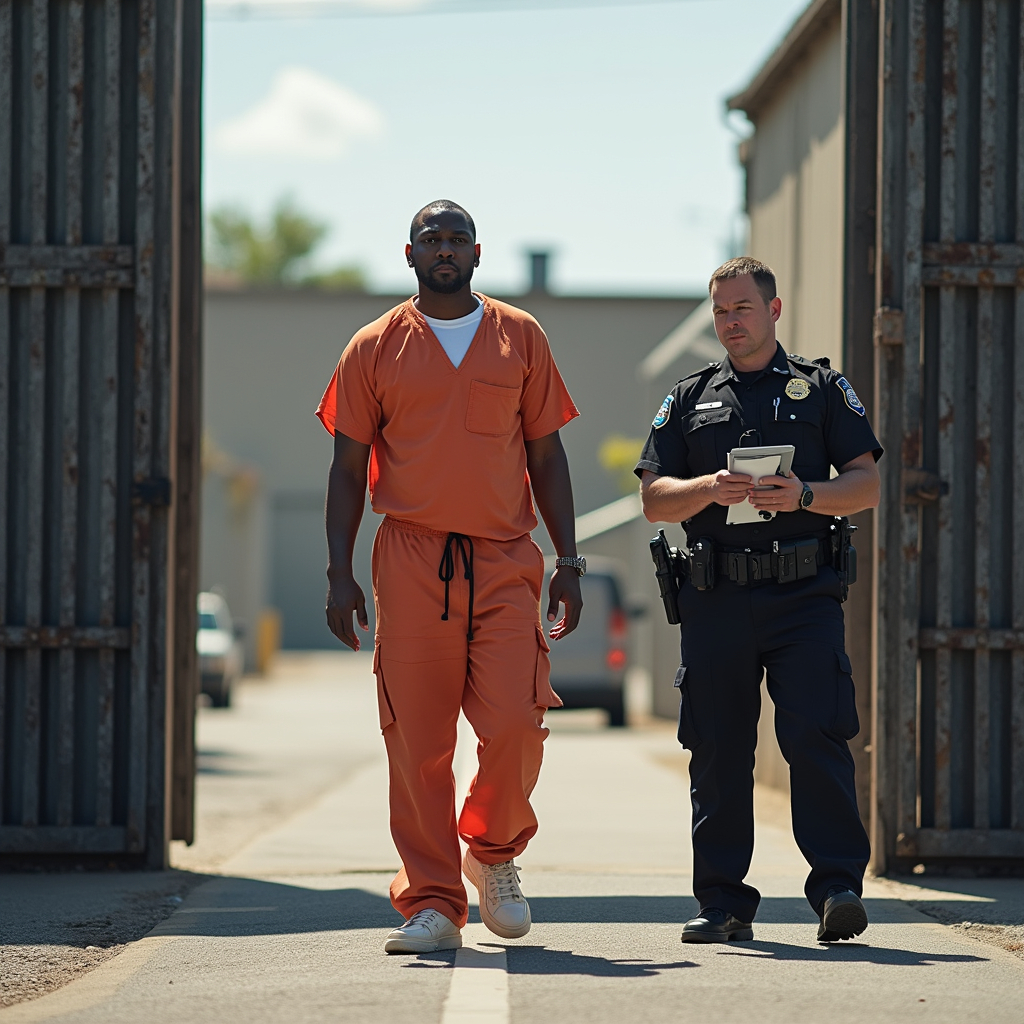
It’s worth noting that the Supreme Court ordered the high powered committee of the states to release all of the detainees who had been released previously under the Supreme Court’s order dated March 23, 2020, as soon as possible, subject to certain circumstances (in addition to considering fresh release).
Approach of the judiciary in parole cases
Time and again, there have been many cases which have been proof of how the Indian judiciary approaches the matters of parole. A few of the cases where the concept of parole was observed by the Indian courts have been enumerated as follows:
Krishan Lal vs. State of Delhi (1975)
In this case, The Supreme Court while stressing upon the concept of parole, stated in its own words that, parole acts as a method of rehabilitation and a mode to check the tendency of the prisoner’s criminal mind to commit the offence again.
In this case, even though the appellant was young in his career and it was his first time that he committed some offence, he still did not deserve any sympathy and the ultimate decision to grant parole to a jail inmate lies with the jail authorities. It becomes very important to observe the prisoner’s behaviour in jail before giving him a leap of hope in the form of parole.
Saibanna vs. State of Karnataka (2005)
In this case, a lady was murdered by her husband and subsequently, he was sentenced to life imprisonment. After his imprisonment, the convict was released on parole for one month and during his parole period, he murdered his second wife as well and assaulted his minor child on the assumption that his wife was cheating on him.
The Supreme Court opined that there can be no two perspectives on the safety of society and the rights of victims. In no case, the rights of the society and especially the victim can be superseded by the rights of a prisoner or an accused. If the rights of an accused would be given priority over the rights of the victim and society as a whole, it would rather result in false sympathy towards the accused.
Dinesh Kumar vs. Govt. of NCT of Delhi (2012)
The Delhi High Court in this case struck down Clause 26.4 (which deals with the eligibility of the prisoner to obtain parole) of the Parole/Furlough Guidelines, 2010 stating that it was violative and infringed Articles 14 and 21 of the Indian Constitution. However, the court also emphasised that there must be strict conditions attached while considering the cases of parole where the convict is sentenced for the crimes such as murders, rapes, dacoity etc.
Election Commission of India vs. Mukhtar Ansari (2017)
In this case, the Delhi High Court in its own words opined that, “a free and fair election is the basic structure of the Constitution, but no candidate has a legal right to canvas for himself de-hors the other statutory restrictions. When a person in custody fills up a nomination for candidature, he does not get a vested right to be released for canvassing. He runs the risk of being not released on bail to canvas for himself. Though the fact that an accused is contesting the election and is required to canvas for himself may be a relevant factor for grant of bail, however that is not the only consideration.”
The court emphasised upon the fact that when an accused is granted bail is not the same as when he is granted custody parole. Both concepts cannot be a substitute for each other and hence, parole cannot be granted for a longer duration of time.
Sanjay Kumar Valmiki vs. State of NCT of Delhi (2020)

In this case, the Delhi High Court reiterated the words of the Apex Court that, “parole is a discretionary remedy whereas furlough is a salutary right and can be granted if the conditions prescribed therein are fulfilled.” While drawing a comparison between parole and furlough, it was clearly stated that a parole is usually granted in situations of urgency. However, a furlough is granted to the convict if he meets the prerequisites as laid down by any state authority.
Is parole period considered a part of the jail term
While providing the answer to this issue of whether the parole period counts as a part of the convict’s sentence, the Supreme Court has expressed its views time and again in various matters. In the case of Smt. Poonam Lata vs. M.L. Wadhawan (1987), the Supreme Court stated that “it must be decided that the duration of release has to be disregarded in computing the period of confinement.”
However, the Supreme Court in the case of Sunil Fulchand Shah vs. Union of India (2000), mentioned that “a temporary release of the person detained does not change his status because his freedom and liberty have not been entirely restored.” The judgement given by the Apex Court in the Poonam Lata case was overruled by the bench in this case by emphasising on the fact that parole is nothing but a temporary release from the prison and hence it cannot be deducted from the actual term of the sentence issued to the convict in any case.
In the Home Secretary (Prison) vs. H. Nilofer Nisha (2020), the Supreme Court unequivocally opined that “the issuance of remission or release is not a right conferred on the prisoner. It is a privilege that the prisoner can get if he or she meets specific requirements.”
Conclusion
Parole is unique among all the rehabilitative measures used in the criminal justice system since it is not a right like bail, but rather a suspension based on the promise of good behaviour. Penal laws in India originate from a time when stringent and deterrent punishments were inflicted upon the wrongdoers with the thought that those kinds of punishments would be more effective in preventing the commission of crimes.
As a result, concepts like parole have been difficult to accept. Furthermore, because this idea is absent from the BNSS (earlier the Code of Criminal Procedure, 1973), it was argued that when society began to modernise and recognize the necessity for liberal expression of the procedural law, separate states and Union Territories might come up with their own parole legislation.
With the advancement of time, as the society moves ahead with a liberal approach to inflict punishment upon the convicts, parole as a concept would help the Indian criminal system to ensure effective rehabilitation of the convicts. However, India is still in need of a unified and codified central legislation on the subject matter of parole so that a common procedure and guidelines are laid down to ensure the smooth functioning of the authorities for granting parole.
Frequently Asked Questions (FAQs)
What factors are observed by the authorities while granting parole?
While deciding to grant parole, the jail authorities or the state authorities keep in mind the following factors:
- The nature of the offence committed by the parolee in question;
- His behaviour while in custody;
- The term of his sentence in jail, and
- The possibility of him reintegrating into the society.
However, the ultimate decision to grant parole is a discretion that lies with the authorities and hence, the above-mentioned factors do not serve as the blanket factors to determine the award of parole.
What is the usual duration of parole?
As there is no fixed duration for which a parole is granted, in most cases, it depends upon the circumstances of the parolee and the crime for which the parolee was sentenced to prison term.
Can the authorities deny parole to a prisoner?
Yes, the authorities can deny granting parole to a prisoner for reasons such as they have an apprehension that the parolee may commit other crimes while serving the parole period and become a danger to the public safety or that the parolee does not follow the conditions of the parole imposed upon him while granting him parole.
What are the general grounds for awarding parole in India?
The grounds for awarding a regular parole to a prisoner in India include:
- Instances of serious illness of his immediate family members; or
- The death of any of his family members; or
- His wife giving birth to a child; or
- When a calamity has caused serious harm to his family, etc.
References
- https://www.mondaq.com/india/trials-appeals-compensation/905726/what-is-parole
- http://internationaljournalcorner.com/index.php/ijird_ojs/article/viewFile/135804/94926
- https://saudijournals.com/media/articles/SIJLCJ_29_263-270_c.pdf
- https://blog.ipleaders.in/comparative-study-probation-parole/
Students of Lawsikho courses regularly produce writing assignments and work on practical exercises as a part of their coursework and develop themselves in real-life practical skills.
LawSikho has created a telegram group for exchanging legal knowledge, referrals, and various opportunities. You can click on this link and join:
Follow us on Instagram and subscribe to our YouTube channel for more amazing legal content.
 Serato DJ Crack 2025Serato DJ PRO Crack
Serato DJ Crack 2025Serato DJ PRO Crack


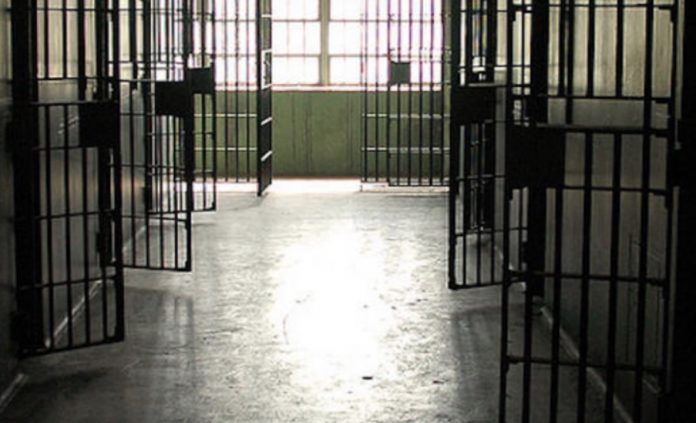







 Allow notifications
Allow notifications


